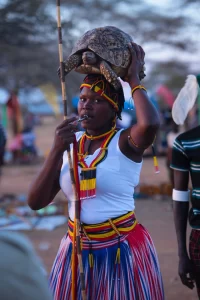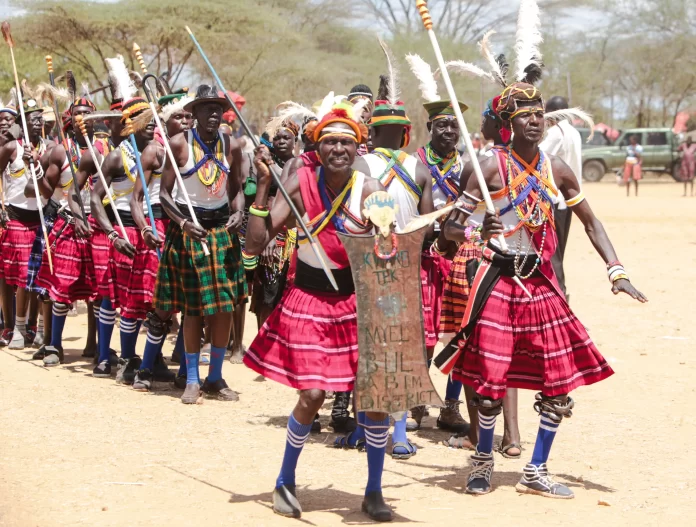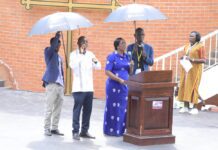An event under the theme, Preserving our Cultural Identity and Diversity for a Dignified Peaceful and Resilient Future that took place from September 4-9, 2023, in Napak district brings together different clusters of the Karamojong people (Ateker) from different parts of Africa.
The event which was attended by the Ateker from Ethiopia, Kenya and South Sudan together with the different Atekers from Uganda was aimed at gathering various clusters to celebrate and embrace their cultural tapestry.
The event brings together the Karamojong people to honor the stories, traditions and arts that bind them together as a community through vibrant performances, insightful discussions, interactive engagements and exchange of experiences aiming to Foster a sense of belonging and cohesion among them.
The Karamojong have much belief in Akuj as their god and a source of cattle. They are among the few tribes in Africa that still have the original look of Africans who still practice their old traditional style. They mainly depend on herding livestock as their major source of income, food and cultural importance such as payment of bride price and performing some cultural rituals.
A man in Karamoja is valued according to how many cattle he has in his kraal. Men are responsible for grazing cattle day and night and also sleep near the kraal to safe guard the cattle while the women generally stay in the manyattas (homesteads) to take care of the children, and going to the gardens.
The event is also deemed as an opportunity for a generation that seems to have been swallowed up by the strong and fast flowing winds of globalization and modernization which thrives faster under the expense of the rich cultural heritage that has for generations been a land mark of identity for diverse groupings in Karamoja.
“This is a rare opportunity for our people to reconnect with their culture, reminding us of the sweet memories on how life was lived before, the advent of fast rapidly spreading modernization,” Betty Lomuria, the Co-founder of Karamoja Cultural Association noted.
She said that, they believe that their cultural richness is not only a source of pride, but it is also a source of strength that has potential to empower them attain the peak of development they desire.
During the event Karamojongs clad in their cultural outfits, the women with a lot of beads on their waists, necks and hair while men wore army uniform-like shirts with an anaga (traditional cloth) tied across their bodies and danced energetically with smiles.

“When you see men putting on army-like shirts, there is a story behind that attire. In 1993, the government recruited the Karachuna (warriors) to protect themselves and their cattle from the Kenyan Turkanas. That’s where they got their style of dressing from.” Remigo Achia, the Member of Parliament for Nabilatuk constituency said.
The Ateker cherish their unique traditional foods, rooted in distinct culture and preparation methods. Their natural diet is centered on sorghum, milk, blood, meat, wild plants and fruits. Some of their common delicacies are, Angodich (made from sorghum flour, soar milk and ghee), Emuna (made of cucumber seeds, sun dried meat, whites ants, ground nuts and honey), Echarakan (filtered blood mixed with fresh milk and drunk immediately), among others. All these were presented on the last day of the cultural event.
Karamoja is worth the speculation because once you visit the area, you will not regret, as you will experience something that is rarely found in any other parts of the world.















